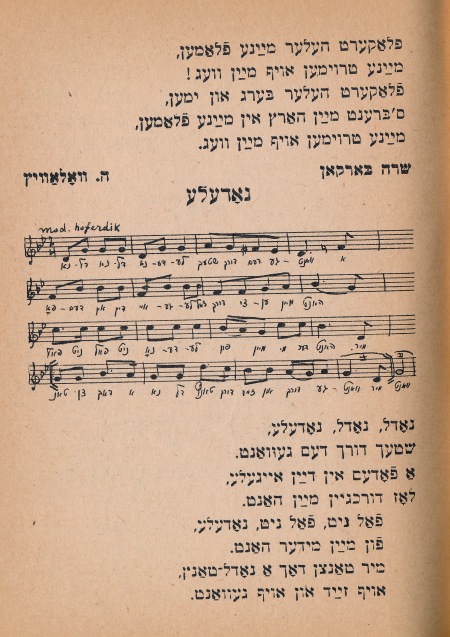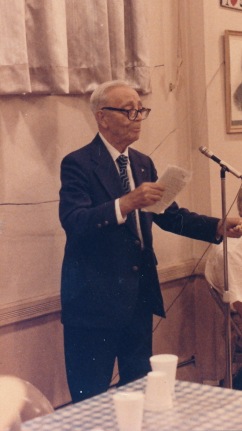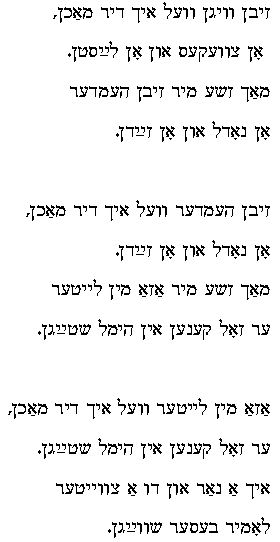Nodele / Little Needle
Words: Sara Barkan, music: H. Wolowitz. Sung by Martin Horowitz, recorded by Gertrude Nitzberg, Baltimore, 1979
Commentary by Itzik Gottesman

Martin Horowitz
The singer Martin Horowitz of Baltimore passed away on Feb, 12, 2020. The obituary in the Baltimore Jewish Times (Mar. 25) writes that “He loved music, dancing, and was an energetic and graceful performer. He played guitar, accompanying himself on folk and Yiddish songs.”
This is another song from the Nitzberg Collection at the Jewish Museum of Maryland. This song, words and music, is included in the collection Zing mit mir published by Workmen’s Circle, NY, 1945 (third printing), edited by Mikhl Gelbart. We have attached the pages, Yiddish words and music.
The text was written by Sarah Barkan (also known as Barkan-Silverman), a radical Yiddish poet who was very much part of the Yiddish communist literary world before the Second World War. She contributed many poems to the leftist Yiddish schools in America, and “Nodele” is one of them. It is published in her book Gutfriling (NYC,1936) where it is titled “Tsu a nodl”.

Sarah Barkan
Barkan was born in Dvinsk (Daugavipils), Latvia, in 1884 and immigrated to the US in 1907. She died in NY in 1957.
The composer Hersh Wolowitz was active in the 1920s and 1930’s. His best known song “A fidler” begins with the line “S’hot der tate fun yaridl”. He published two collections Tsen kinderlider (1929) and Lider tsum zingen (1936).
TRANSLITERATION
Nodl, nodl, nodele,
Shtekh durkh dem gevant.
A fodem in dayn eygele
Loz durkhgeyn mayn hant.
Refrain:
Fal nit, fal nit nodele,
fun mayn mider hant.
Mir tantsn dokh a nodltants,
Af zayd un af gevant.
Ven der tog vet shlofn geyn,
rustu in mayn lats.
Nodl, nodl nodele,
nodele mayn shats.
Refrain
TRANSLATION
Needle, needle, little needle,
poke through this cloth.
Let pass a thread in your little eye
through my hand.
Refrain:
Don’t fall, don’t fall little needle
from my weary hand.
We dance a needle dance,
on silk and on cloth.
When the day will go to sleep,
you rest in my lapel.
Needle, needle, little needle,
little needle my treasure.
Refrain



 Jacob Gorelik at the Sholem Aleichem Cultural Center in the Bronx.
Jacob Gorelik at the Sholem Aleichem Cultural Center in the Bronx.






